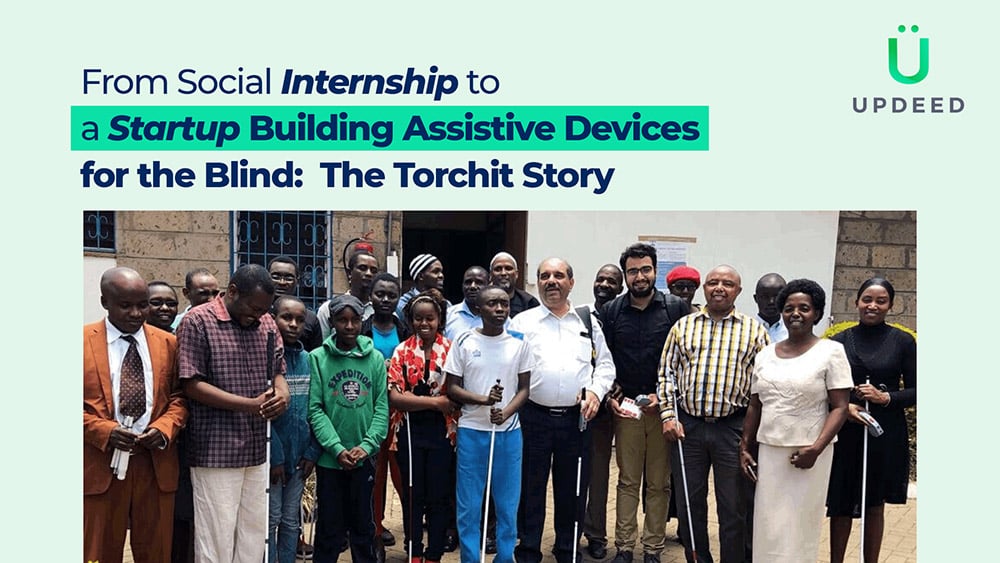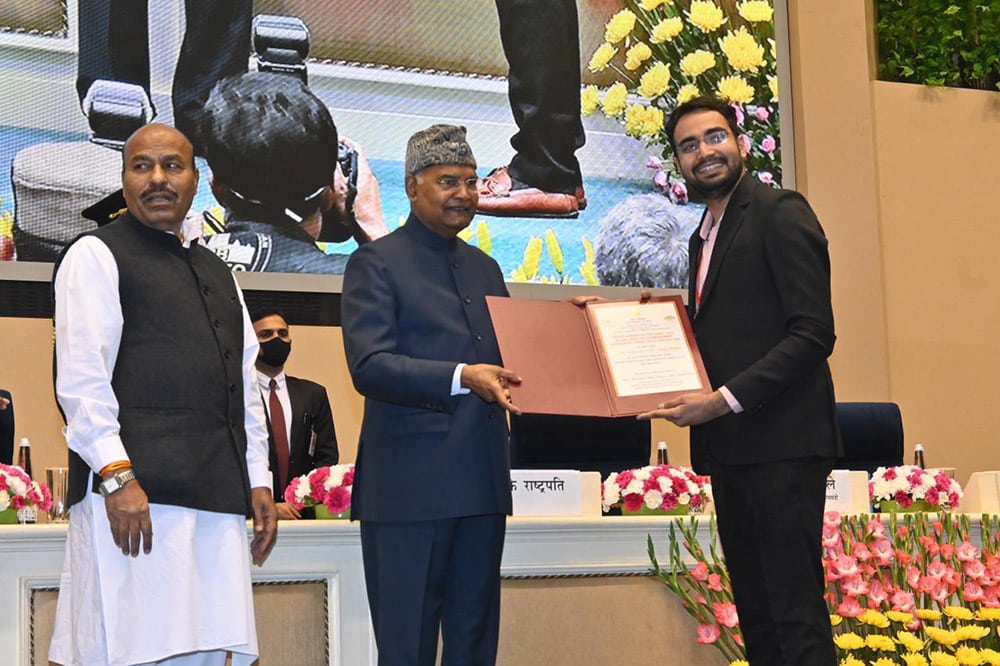From Social Internship to a Startup Building Assistive Devices for the Blind: The Torchit Story
India is home to the world’s largest number of visually impaired people, with a staggering eight million individuals affected by blindness. This makes their life difficult.
Now, the question is – what can be done? Assistive devices can be the answer, as they help blind people access education, employment, and other opportunities that would otherwise be challenging without them.
To that end, Torchit comes in. Founded in 2016, this Gujarati startup is creating a sustainable ecosystem that fosters equality, embraces diversity and technology-enabled innovation for transforming the lives of Persons with Disabilities (PWDs) by creating smart assistive technology and IoT, AI & ML-based solutions.

Hunny Bhagchandani, the founder of Torchit, was just a second-year engineering student when he came face-to-face with the problems in the lives of blind people.
This is how he thought of Torchit.
Recognising his efforts and making affordable and innovative solutions for PwD, Bhagchandani recently received the National Award from the President of India.
And this is where the story begins
During his second year of BTech in Industry Engineering from Pandit Deendayal Energy University, Bhagchandani was required to do a social internship as part of his studies. Bhagchandani, although unwilling, thought to give it a try and enrolled himself for the internship at a blind school in Ahmedabad.
“I was doing my internship with a blind candidate named Ganesh. We became friends while working, our friendship grew, and I started enjoying my work. One day, I came across the news that Ganesh met with an accident and got six stitches on his head. I went to see him, and fortunately, he hasn’t suffered from major injuries,” said Bhagchandani.
“Ganesh was on bed rest, and I continued doing my internship. I met his senior, and while talking, he told me that it’s very common for blind people to get hit,” he added.
This incident amazed Bhagchandani and made him think that despite the technology being widespread in the 21st century, blind people still have to go through such ordeals regularly. He thought of an idea – just like how people use torches to navigate amid the dark, something similar can be done for blind people. However, he was not able to do much.
Again, in the third year, he got an opportunity to apply for the MIT Media Lab fellowship. One of the projects he was asked to submit a proposal for could impact society. And it was the idea of a torch that came to his mind.
“As a non-IITian student, I was unsure if I would get selected, but I was selected. I started working on the project and submitted a prototype at the end of my fellowship,” Bhagchandani said.
“In the last semester of my third year, I got a call from the senior management team to continue working on my idea of “Torch” and a 25 lakh grant was approved for the project,” he added.
This particular led to the birth of the company Torchit on 19th August 2016.

The impact Torchit is creating
Today, this social tech startup is creating smart assistive technology and IoT, AI & ML-based solutions to empower PWDs, having impacted 100,000+ lives in 40+ countries with over 300+ organisations globally.
Bhagchandani shares his vision to make this world more accessible to over a billion people with disabilities through Torchit’s assistive devices.
“Living with blindness can pose significant challenges, particularly regarding independence and mobility. Blind individuals often rely on others to help them navigate their surroundings, limiting their ability to explore and enjoy the world around them. This can lead to feelings of frustration, isolation, and dependency,” said Bhagchandani.
“To address this issue, it is essential to create more accessible environments and develop innovative solutions that empower visually impaired individuals to be more independent,” he added.
To fulfill this vision, Torchit has numerous products to offer to the disabled community that includes,
Saarthi: The ML-based product is designed for visually impaired people to help them navigate their surroundings. It can be attached to a white cane and senses obstacles through feedback through buzzing and vibrations. It has a powerful battery and microcontroller for greater effectiveness and longevity, with three accurate ranges available.
The device can be used with a cane to detect obstacles and find directions in unfamiliar places or independently in familiar areas for obstacle detection. Built-in sensors help the user accurately identify their surroundings. To make the product affordable to more people and further our mission of empowering the visually impaired, Saarthi has been priced economically.
Vois: These smart gloves have been developed to assist communication for those who are deaf and mute. The gloves have a built-in translation engine that can interpret spoken language and convert it into text, allowing the deaf user to read the message.
The mute user can choose pre-set phrases or sentences through finger gestures or write their complete sentence. This makes communication easier and more accessible for those who may otherwise struggle.
Besides these, Torchit also has a Handicare product that assists individuals with lower limb or locomotive disabilities in moving from one place to another without external assistance. It provides proper mobility for those who struggle to move independently, allowing them to be more independent in their daily lives. It also has Flexmo crutches, an improved version of traditional crutches designed to enhance mobility for those who rely on them.
Further, the company is planning to introduce computer-vision-based smart glasses for blind people in the coming future. These assistive devices are essential for blind people to help them navigate and perform daily tasks independently. They provide a sense of independence, confidence, and empowerment that can significantly improve the quality of life for visually impaired individuals.
The roadblocks and the way forward
The social sector is critical in addressing some of the most pressing issues facing our society today, yet it is often overlooked as a career path, says Bhagchandani.
He added that finding talented individuals willing to work in the social sector can be challenging, but it is essential to attracting the right people to mission-driven work.
“Say, for example, with the right talent and tools in place, the time to make products which currently takes around two years, we can bring it down to 2-3 months,” said Bhagchandani.
Funding is not a cause for worry as of now. However, the startup plans to scale, with plans to grow in the overseas market as well.
“We are thinking of raising good funding in the future,” Bhagchandani concluded.
Ready to make a positive impact in the world?
UPDEED is the place for you. Our free and open platform is filled with inspiring stories from individuals and organizations who are making a difference in their communities and beyond. Connect and collaborate with like-minded individuals from around the globe on UPDEED, and discover your own potential to create meaningful change. Join our community and make a difference.





